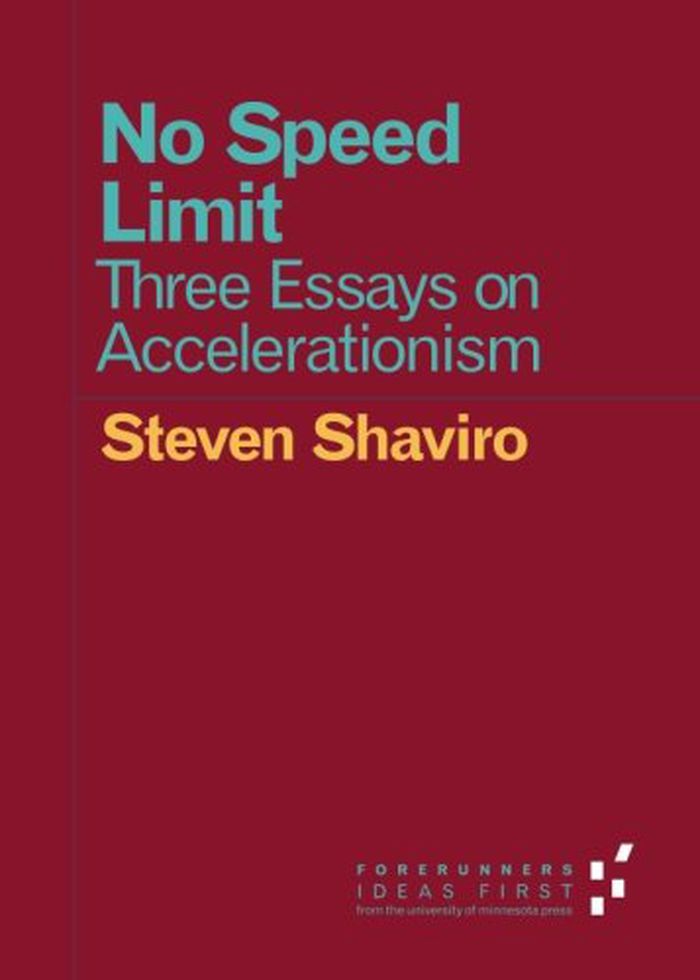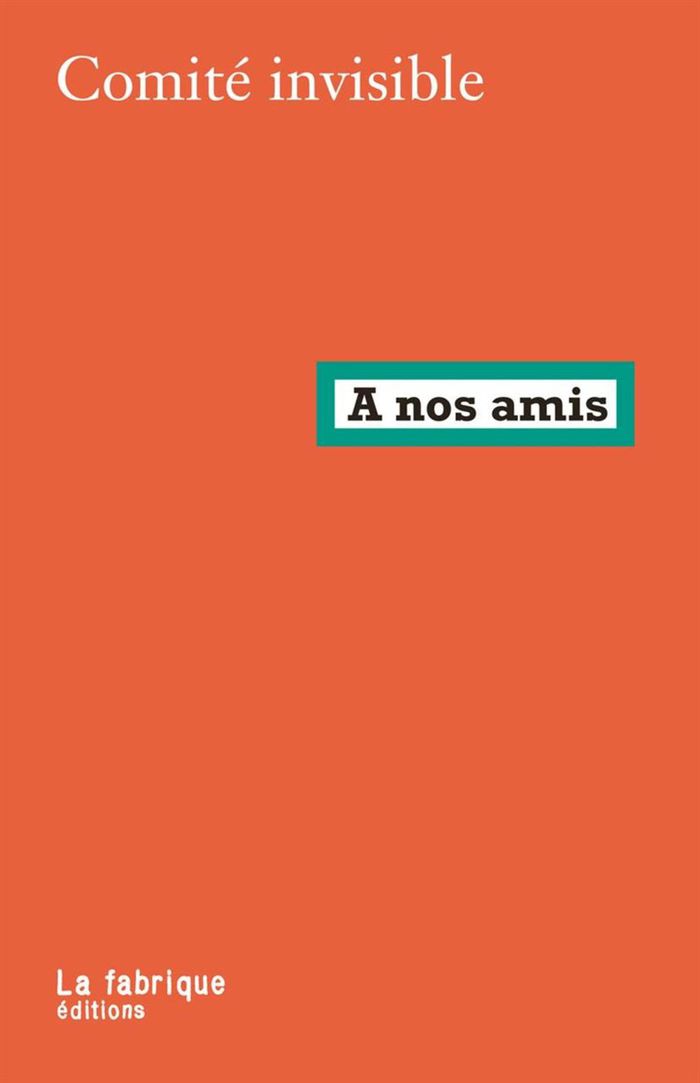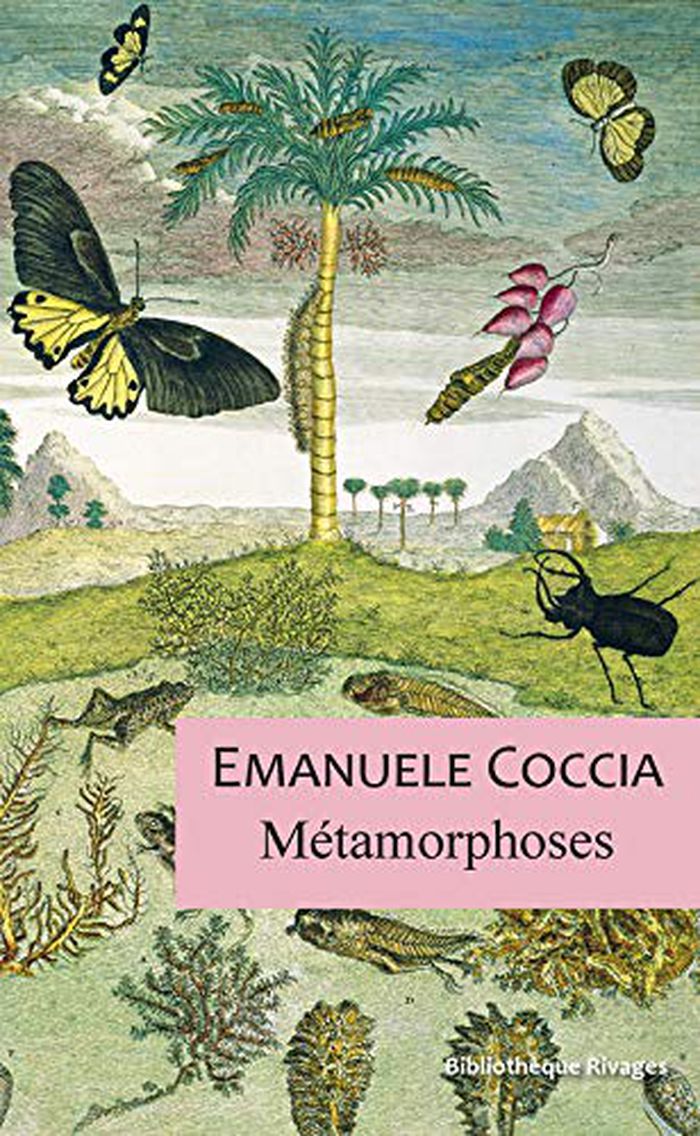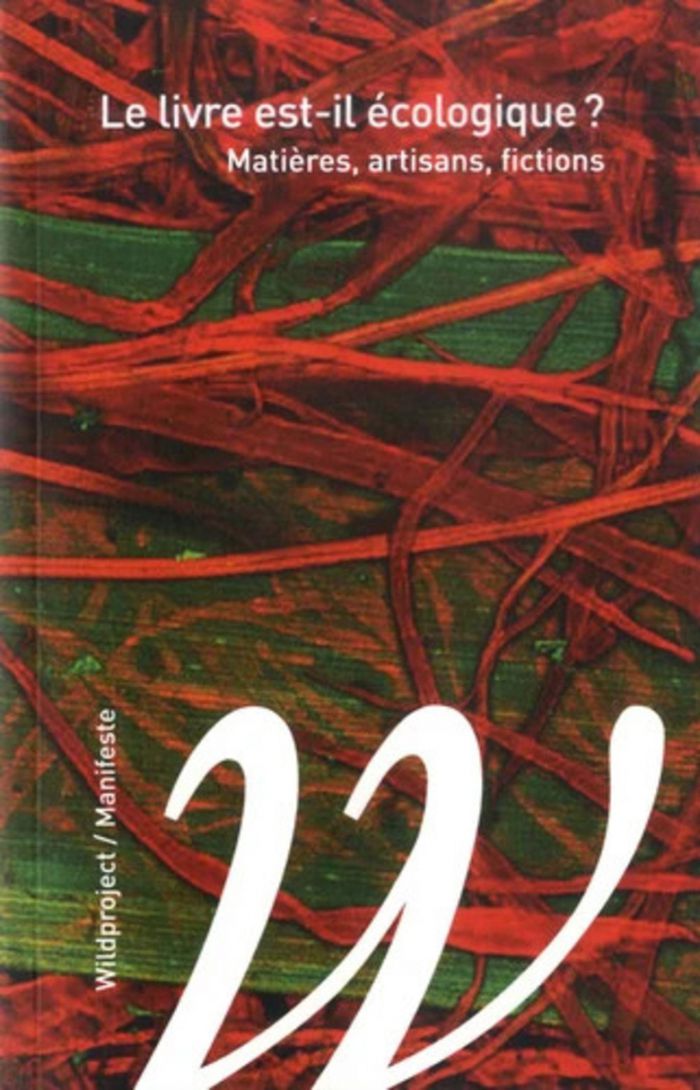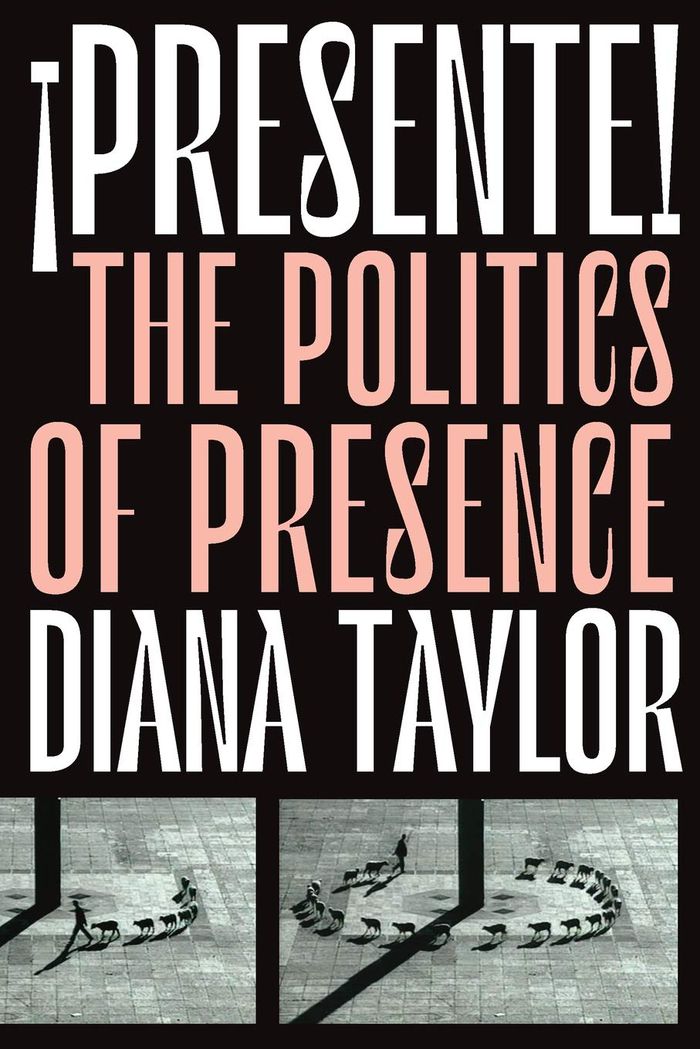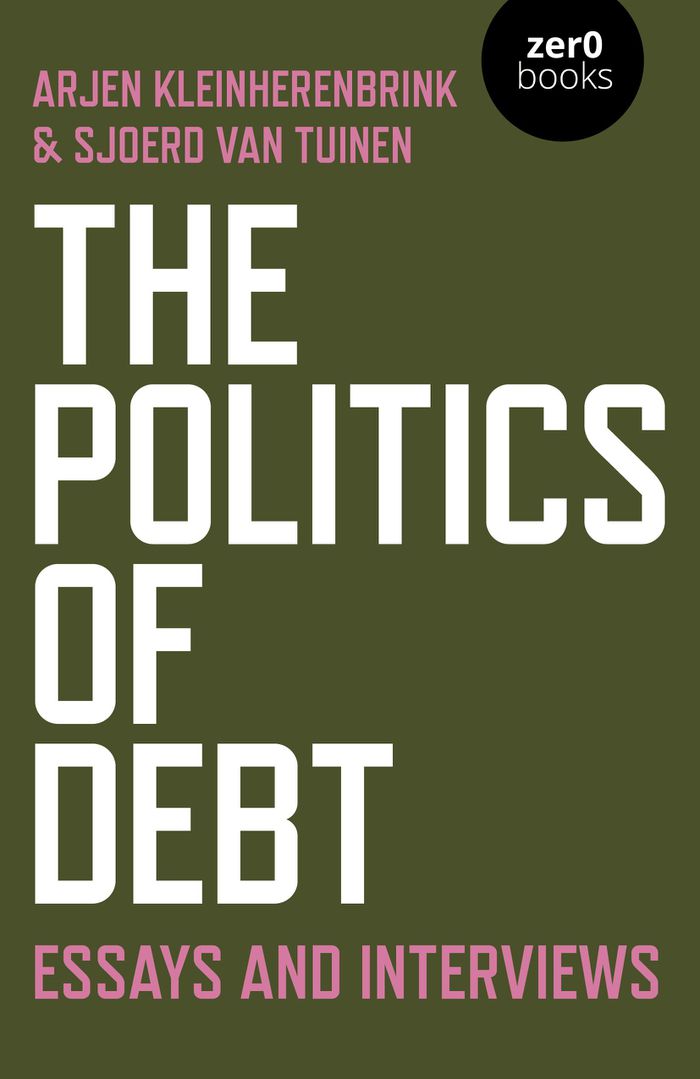$13.99
(disponible en magasin)
Résumé:
Accelerationism is the bastard offspring of a furtive liaison between Marxism and science fiction. Its basic premise is that the only way out is the way through: to get beyond capitalism, we need to push its technologies to the point where they explode. This may be dubious as a political strategy, but it works as a powerful artistic program. Other authors have debated(...)
No speed limit: essays on accelerationsim
Actions:
Prix:
$13.99
(disponible en magasin)
Résumé:
Accelerationism is the bastard offspring of a furtive liaison between Marxism and science fiction. Its basic premise is that the only way out is the way through: to get beyond capitalism, we need to push its technologies to the point where they explode. This may be dubious as a political strategy, but it works as a powerful artistic program. Other authors have debated the pros and cons of accelerationist politics; 'No Speed Limit' makes the case for an accelerationist aesthetics. Our present moment is illuminated, both for good and for ill, in the cracked mirror of science-fictional futurity.
Théorie/ philosophie
À nos amis
$17.95
(disponible sur commande)
Résumé:
« À nos amis » se veut un rapport sur l’état du monde et du mouvement, un écrit essentiellement stratégique et ouvertement partisan. Son ambition politique est démesurée : produire une intelligibilité partagée de l’époque, en dépit de l’extrême confusion du présent. On ne peut se contenter de célébrer l’onde insurrectionnelle qui parcourt présentement le monde, tout en se(...)
À nos amis
Actions:
Prix:
$17.95
(disponible sur commande)
Résumé:
« À nos amis » se veut un rapport sur l’état du monde et du mouvement, un écrit essentiellement stratégique et ouvertement partisan. Son ambition politique est démesurée : produire une intelligibilité partagée de l’époque, en dépit de l’extrême confusion du présent. On ne peut se contenter de célébrer l’onde insurrectionnelle qui parcourt présentement le monde, tout en se félicitant de l’avoir senti poindre avant les autres, sans s’étendre sur le caractère composite, et parfois franchement équivoque, de certains soulèvements. Ce dont il s’agit aujourd’hui pour le Comité Invisible, c’est plutôt cerner et prendre à bras le corps les difficultés, les impasses et les embûches que rencontre ce mouvement mondial qui n’a pas de nom, mais qui fait tout trembler. Comment faire pour que les insurrections ne s’étranglent pas au stade l’émeute ? Quelles sont les stratégies adverses et les moyens de les déjouer ? Sommes-nous bien sûrs d’avoir saisi le type de gouvernementalité qui nous fait face ? Quelle part de la tradition révolutionnaire faut-il laisser derrière nous pour pouvoir à nouveau envisager une victoire ? Et d’ailleurs, en quoi consisterait une « victoire » ?
Théorie/ philosophie
$38.95
(disponible en magasin)
Résumé:
La métamorphose, tout vivant y passe. C’est l’expérience élémentaire et originaire de la vie, celle qui définit ses forces et ses limites. Depuis Darwin, nous savons que toute forme de vie – l’être humain compris – n’est que la métamorphose d’une autre, bien souvent disparue. De notre naissance à notre alimentation, nous en faisons tous l’expérience. Dans l’acte(...)
Métamorphoses : la matière de la vie
Actions:
Prix:
$38.95
(disponible en magasin)
Résumé:
La métamorphose, tout vivant y passe. C’est l’expérience élémentaire et originaire de la vie, celle qui définit ses forces et ses limites. Depuis Darwin, nous savons que toute forme de vie – l’être humain compris – n’est que la métamorphose d’une autre, bien souvent disparue. De notre naissance à notre alimentation, nous en faisons tous l’expérience. Dans l’acte métamorphique, changement de soi et changement du monde coïncident. Affirmer que toute vie est un fait métamorphique signifie qu’elle traverse les identités et les mondes sans jamais les subir passivement. Cet essai novateur jette les bases d’une philosophie de la métamorphose.
Théorie/ philosophie
$17.95
(disponible sur commande)
Résumé:
Bien plus qu’un ebook, le livre peut être un objet écologiquement vertueux. À certaines conditions cependant… Or depuis vingt ans, l’objet livre et ses usages se sont profondément transformés – concentration du monde de l’édition, délocalisation des impressions, essor du numérique, etc. Dans une série de petites écofictions, des libraires se sont réuni.e.s pour(...)
Le Livre est-il écologique ? : matières, artisans, fictions
Actions:
Prix:
$17.95
(disponible sur commande)
Résumé:
Bien plus qu’un ebook, le livre peut être un objet écologiquement vertueux. À certaines conditions cependant… Or depuis vingt ans, l’objet livre et ses usages se sont profondément transformés – concentration du monde de l’édition, délocalisation des impressions, essor du numérique, etc. Dans une série de petites écofictions, des libraires se sont réuni.e.s pour imaginer le livre du futur. Le résultat : une invitation à ouvrir nos imaginaires, et à penser l’ensemble des interactions liées au livre comme un écosystème – un milieu de vie, tissé et soutenu par un réseau d’interdépendances. Exigences nouvelles des lecteurs, éco-responsabilité, interprofession, « bibliodiversité » : autour de quels piliers voulons-nous construire la chaîne du livre de demain? Dans quelle type d’industrie sera-t-elle prise? Les alternatives sont assurément politiques et tournées vers les communs. Loin des normes et des solutions toutes faites, cet ouvrage collectif dévoile des enjeux qui obligent à de sérieuses réflexions collectives.
Théorie/ philosophie
$19.95
(disponible sur commande)
Résumé:
Une approche anthropologique, historique et artistique des rapports entre l'homme et l'arbre. L'auteur étudie les métamorphoses des représentations, de l'imaginaire et des usages associés à ce végétal depuis l'Antiquité (Pline l'Ancien, Virgile, Columelle) jusqu'aux époques moderne et contemporaine (de Duhamel du Monceau à J. Beuys, en passant par Hugo, Proust ou Y. Bonnefoy).
La douceur de l'ombre : l'arbre, source d'émotions, de l'Antiquité à nos jours
Actions:
Prix:
$19.95
(disponible sur commande)
Résumé:
Une approche anthropologique, historique et artistique des rapports entre l'homme et l'arbre. L'auteur étudie les métamorphoses des représentations, de l'imaginaire et des usages associés à ce végétal depuis l'Antiquité (Pline l'Ancien, Virgile, Columelle) jusqu'aux époques moderne et contemporaine (de Duhamel du Monceau à J. Beuys, en passant par Hugo, Proust ou Y. Bonnefoy).
Théorie/ philosophie
$39.95
(disponible sur commande)
Résumé:
In ''¡Presente!: the politics of presence'' Diana Taylor asks what it means to be physically and politically present in situations where it seems that nothing can be done. As much an act, a word, an attitude, a theoretical intervention, and a performance pedagogy, Taylor maps ''¡Presente!'' at work in scenarios ranging from conquest, through colonial enactments and(...)
¡Presente!: the politics of presence
Actions:
Prix:
$39.95
(disponible sur commande)
Résumé:
In ''¡Presente!: the politics of presence'' Diana Taylor asks what it means to be physically and politically present in situations where it seems that nothing can be done. As much an act, a word, an attitude, a theoretical intervention, and a performance pedagogy, Taylor maps ''¡Presente!'' at work in scenarios ranging from conquest, through colonial enactments and resistance movements, to present moments of capitalist extractivism and forced migration in the Americas. ''¡Presente!''—present among, with, and to; a walking and talking with others; an ontological and epistemic reflection on presence and subjectivity as participatory and relational, founded on mutual recognition—requires rethinking and unlearning in ways that challenge colonial epistemologies. Showing how knowledge is not something to be harvested but a process of being, knowing, and acting with others, Taylor models a way for scholarship to be present in political struggles.
Théorie/ philosophie
$30.95
(disponible en magasin)
Résumé:
Our times of crumbling structures and decaying social bonds are often depicted as apocalyptic. This book takes the apocalypse as a metaphor to help us in the search for meaning in our everyday realities. Yes, the apocalypse is when social structures and institutions fall apart and we are terrified and suffocated by the debris raining down upon us. But 'apocalypse' also(...)
After the apocalypse: finding hope in organizing
Actions:
Prix:
$30.95
(disponible en magasin)
Résumé:
Our times of crumbling structures and decaying social bonds are often depicted as apocalyptic. This book takes the apocalypse as a metaphor to help us in the search for meaning in our everyday realities. Yes, the apocalypse is when social structures and institutions fall apart and we are terrified and suffocated by the debris raining down upon us. But 'apocalypse' also means 'revelation'. The very collapse reveals what dissipating institutions were constructed upon: where there ought to have been foundational common values, most often there is violence and raw power. Yet the values are there, too, and they can be found. This book is a guide to these values, showing how they can be of help to organizers and organizational dreamers.
Théorie/ philosophie
$42.95
(disponible sur commande)
Résumé:
Degrowth is an emerging social movement that overlaps with proposals for systemic change such as anti-globalization and climate justice, commons and transition towns, basic income and Buen Vivir. ''Degrowth in Movement(s)'' reflects on the current situation of social movements aiming at overcoming capitalism, industrialism and domination. The essays ask: What is the key(...)
Théorie/ philosophie
juin 2020
Degrowth in movements: exploring pathways for transformation
Actions:
Prix:
$42.95
(disponible sur commande)
Résumé:
Degrowth is an emerging social movement that overlaps with proposals for systemic change such as anti-globalization and climate justice, commons and transition towns, basic income and Buen Vivir. ''Degrowth in Movement(s)'' reflects on the current situation of social movements aiming at overcoming capitalism, industrialism and domination. The essays ask: What is the key idea of the respective movement? Who is active? What is the relation with the degrowth movement? What can the degrowth movement learn from these other movements and the other way around? Which common proposals, but also which contradictions, oppositions and tensions exist? And what alliances could be possible for broader systemic transformations?
Théorie/ philosophie
$25.95
(disponible en magasin)
Résumé:
''The politics of debt'' brings together philosophers, political scientists, and economists and sets them the task of reflecting on the political role played by debt. Focusing on the aftermath of the 2008 economic crisis, particularly in the United States and Europe, the book is split into groups. It contains six essays and five interviews that aim to fully comprehend the(...)
Théorie/ philosophie
février 2020
The politics of debt: Essays and interviews
Actions:
Prix:
$25.95
(disponible en magasin)
Résumé:
''The politics of debt'' brings together philosophers, political scientists, and economists and sets them the task of reflecting on the political role played by debt. Focusing on the aftermath of the 2008 economic crisis, particularly in the United States and Europe, the book is split into groups. It contains six essays and five interviews that aim to fully comprehend the political consequences of the economic crisis and specifically of debt.
Théorie/ philosophie
$32.00
(disponible sur commande)
Résumé:
Elizabeth A. Povinelli has mapped the creation and dismantling of worlds formed by the twinning of historical progress and settler colonialism—as a unity in events and a contradiction in ideology. Even if corporations and nation-states now collude in the same Ponzi schemes, they still continue to transform space and time. At the receiving end of the ideological exhaust(...)
E-Flux journal: Routes and worlds
Actions:
Prix:
$32.00
(disponible sur commande)
Résumé:
Elizabeth A. Povinelli has mapped the creation and dismantling of worlds formed by the twinning of historical progress and settler colonialism—as a unity in events and a contradiction in ideology. Even if corporations and nation-states now collude in the same Ponzi schemes, they still continue to transform space and time. At the receiving end of the ideological exhaust pipe, where transformation is inherited as deformation, the diagram flips to place brutality and existential exhaustion at the beginning. But the beginning of what? How about a new beginning, starting with modes of survival and persistence against, and within, a world built from deferred promises? This is a world that many in the imperial hemisphere are only starting to realize they’ve known for longer than they want to admit.
Théorie/ philosophie
